- Home
- Edmund White
City Boy Page 2
City Boy Read online
Page 2
This idea that literature was somewhere nearby made it only more tantalizingly distant. I remember thinking how strange it was that all the writers of the past seemed to know each other but that “we” didn’t. I supposed that the writers of the future were already living and working in New York, but where to find them?
I felt professionally isolated—worse, becalmed. Nothing is more tedious than working in a big corporation. We had such a narrow range of activity and our tasks were so silly and infantile that we felt degraded.
Part of my isolation, no doubt, was due to my being attracted only to men my own age or younger. I wasn’t meeting older people who were accomplishing things. At Time-Life Books there was only one exception, an editor, Ezra Bowen, a tough guy with rolled-up sleeves, a wiry frame, and a punched-in nose who kept a photo on the wall of a father lion licking his cubs. Ezra was the son of Catherine Drinker Bowen, the celebrated biographer (Tchaikovsky, John Adams, Ben Franklin), and he had literary—well, not ambitions but rather manners. He’d been married to a novelist, Joan Williams, who before that had been one of Faulkner’s personal favorites, his protégée. When they’d met, Faulkner was in his fifties and already a Nobel Prize winner and Joan Williams was just a redheaded college girl from Memphis. They were briefly lovers and even collaborated on a play, but she’d ended their affair because he wasn’t free to marry her (he already had a wife) and he was thirty-some years older. By the time she married Ezra Bowen in the early fifties, Faulkner was in love with the even younger (and more receptive) Jean Stein, but he remained friendly with Joan Williams and wrote her hundreds of letters. She and Ezra had two sons and divorced in 1970. She fictionalized her relationship with Faulkner in a novel called The Wintering. People around the office said that Ezra had taken a year off from Time-Life to write his own novel, but had wasted the time constructing a study for himself in a shed in the garden—and that Joan, saddled with the children, the housework, and a part-time job, had turned out a successful novel in the same period. She wrote five highly regarded novels in all, and Ezra only did a few Time-Life books on such things as skiing, Native Americans, the wheel.
I was afraid of ending up like Ezra. I forced myself to write plays and novels during the evenings after work—anything creative as a break from the torpor of an imagination-killing office job.
Chapter 3
I was making four hundred dollars a month. Stan’s and my apartment cost just a hundred. It was on MacDougal between Bleecker and Houston, in the heart of the old Greenwich Village, right around the corner from the Little Red School House, a bastion of progressive education, and directly across the street from Bob Dylan’s apartment, though I never once glimpsed him and didn’t quite see the fuss over a man whose singing sounded whiny to me. On the corner was the San Remo, which had until recently been a famous gay bar but was now straight. Here, in the men’s toilet, Terry Southern in his novel Candy had set an abortion scene. Frank O’Hara, the New York poet, had hung out there. I pictured thin gay men in Brooks Brothers suits, smoking, drinking martinis, their pale faces covered with light hangover sweat, their teeth brown from cigarettes, their bluish white hands shaking.
There was also a coffee shop across MacDougal called the Hip Bagel. Hip was for a while crossed out, then later reinstated, as the word itself was condemned for being square, then rescued through a second degree of irony. It had black walls and individual spotlights trained down on booths. In a back booth on the left I would sometimes drink espresso with an oversize girl who swore she was going to be a famous pop singer someday. I’d never heard of a fat singer off the grand opera stage, so I just nodded politely, though I was impressed to hear that she’d already appeared in The Music Man. A few years later she emerged as Mama Cass in the Mamas and the Papas, which meant little to me since except for the times it would provide the sound track for my romances I didn’t care for pop. By now I’ve loosened up a little more and have over the years learned, through repetition perhaps, to appreciate and even enjoy some of the popular music boyfriends have pressed upon me or played for me.
Another place where I’d sit and nurse a beer was the Bleecker Street Tavern, a barny old bar with many tables and few customers and a kindly waitress with a man’s face and dyed hair. Little did I know that this had been the first gay bar in New York, the Slide; in the nineteenth century all these tables had been crowded with transvestite prostitutes in crinolines and their top-hatted customers. In the basement were little rooms where the whores had taken their johns, and though the rooms are still there the place is now a heavy-metal hangout called Kenny’s Castaways.
The beatnik/hippie revolution was swirling all around me. After work I’d take the subway down and get off at the West Fourth Street stop and walk to our tiny, dirty, roach-trap apartment on MacDougal. On a warm evening my street was so crowded with kids with long hair and burgundy velvet jeans and mirrored vests and filmy shirts with puffy pirate sleeves that few cars would venture down it. It was still an old Italian neighborhood with little cheap pasta joints down two or three steps from street level (Monte’s was our favorite), cafés serving espresso such as the Caffè Reggio, and funeral homes with alabaster urns lit from within by electric bulbs, the stained-glass windows shrouded by closed beige curtains that were never opened. Our neighbors were Italian and spoke to each other every morning in, I guess, a Neapolitan dialect. Out our scrap of back window we could see old Italian wives cranking laundry across the air shaft on pulley-operated lines. We were far from our Midwestern suburban roots. Over that bedrock of the Italian Village was scattered the more recent topsoil of stores offering hookahs and shabby finery and light boxes and paintings that one could make oneself by splashing acrylics on a revolving potter’s wheel—the centrifugal force threw the shiny colors out in crazed patterns. The smell of incense and patchouli filled the air.
As I came home in my suit and tie, weaving my way through the motley throngs, skinny kids in fringed leather coats would growl at me, “Go back to the suburbs.” Which made me indignant, since I knew they were probably living with their parents in the suburbs and had to sneak out of the house with a paper bag full of their trendy new clothes. They’d change in the back of an unlit bus, leave behind their bourgeois togs in a bus station locker, and traipse down to the Village in their beads and bangles. They were the “plastic hippies,” not I!
Through Raymond Sokolov, one of my high school friends, I did some freelance reviewing for Newsweek, which would have landed me in trouble at Time-Life if anyone had noticed. I reviewed Malraux’s Anti-Memoirs (published in 1967 in America) and Solzhenitsyn’s The First Circle (1968) and disliked them both. Malraux was obviously a fake, a bore, and a liar, though Americans were still impressed with his name and Man’s Fate was still considered a “classic,” much like that other Communist classic, Mikhail Sholokhov’s And Quiet Flows the Don—which won its author the Nobel Prize in 1965 though most critics now believe it was largely plagiarized and written by a committee.
The First Circle, though a novel that protested Stalin’s regime, seemed to me proof of the sad consequences of Soviet censorship, since it could easily have been written in the nineteenth century. I told my editor at Newsweek that the publication of the book should serve as the pretext for a cover story on the samizdat press (clandestine self-published manuscripts that had been censored by the Soviet state), but my advice was ignored and every other publication in the States declared the book a masterpiece. One wonders how many people read either book today. I wasn’t given any more books since my reviews put me out of step with everyone else in the country.
I went on to review a few books for the New Republic, but those pieces, too, were mostly nasty—and in 1978 I wrote a negative if respectful review of Edward Said’s Orientalism, one of the most influential books of our day. I suppose I was so underpublished and resentful in those days that it was hard for me to write a positive review of anything by anyone. Said, unfortunately, remembered my bad review, and it took years for me to
repair the damage, which I very much wanted to do because upon reflection I came to admire him so much. In the end, in the early 1990s we became friends and continued to be so until he died.
I suppose that just as art was still meant to be difficult at the beginning of the sixties and only gradually became just another form of mass entertainment through the high jinks of Pop Art, in the same way politics were austere and Marxist in 1960 but had become “fun” by 1970, turning into the psychodrama of the New Left.
In fact, everything in the America I knew after 1965 was warming up, becoming more subjective and democratic and amusing and accessible. Although in my own way I, too, was moving toward the personal through my writing, I was never entirely convinced it was the right way. I still idolized difficult modernist poets such as Ezra Pound and Wallace Stevens, and I listened with solemn but uncomprehending seriousness to the music of Schoenberg. Later I would learn to pick and choose my idiosyncratic way through the ranks of canonical writers, composers, artists, and filmmakers, but in my twenties I still had an unquestioning admiration for the Great—who were Great precisely because they were Great. Only later would I begin to see the selling of high art as just one more form of commercialism. In my twenties if even a tenth reading of Mallarmé failed to yield up its treasures, the fault was mine, not his. If my eyes swooned shut while I read The Sweet Cheat Gone, Proust’s pacing was never called into question, just my intelligence and dedication and sensitivity. And I still entertain these sacralizing preconceptions about high art. I still admire what is difficult, though now I recognize it’s a “period” taste and that my generation was the last to give a damn. Though we were atheists, we were, strangely enough, preparing ourselves for God’s great Quiz Show; we had to know everything because we were convinced we would be tested on it—in our next life.
In the late sixties I was a living contradiction. I was still a self-hating gay man going to a straight psychotherapist with the intention of being cured and getting married. I had an almost Catholic awe before the whole institution of marriage, which I mocked at the same time. My parents were both Texans, and in one small corner of my mind I silently objected to the way Yankee intellectuals dismissed all Southerners as rednecks. Most of my new friends in New York scoffed at Lyndon Johnson because of his accent, ignoring the value of his Great Society reforms. At Time-Life I would read through Johnson’s off-the-record remarks to journalists in the presidential plane; he’d talk about “niggers” but at the same time he was determined to help black Americans get a good education. Because he used the N-word I believed him.
I was a nerd and an egghead but I was also going three times a week to the Sheridan Square gym and building up my body. I’d never liked sports and I’d been bad at them in school, but now I was spending hours every week pumping iron. When other men stared at my newly muscular body with lust, I could scarcely breathe. Their attention frightened me, though I sought it.
As a socialist I longed for the Revolution, but in the meantime I held on to my nine-to-five (or eleven-to-six) office job. And felt bad about it. We “socialists” were so naïve that we thought no one with progressive politics should drive an expensive car or live in a big house; if he did, we accused him of hypocrisy, not realizing that an individual’s personal wealth has no relevance to his politics once he’s freed himself of self-serving arguments. At the same time, ironically, we were so uniformly and unconsciously sexist that we saw nothing strange in that all writers at Time-Life were male and all researchers female.
One day a top editor, a real New England patrician named Maitland Edey, overheard me and my researcher—and great friend to this day—Sigrid talking about feminism. Edey was genuinely curious about what rights women might still be demanding, and he invited Sigrid and me to a pleasant lunch at the top of the Time-Life Building in a private dining room. Faced with this kindly but starchy and highly skeptical aristocrat, we couldn’t come up with much. I’m sure he was disappointed by our fuzzy, halfhearted observations and was probably convinced by the end of the meal that this new, only half-formulated version of feminism was nothing but empty complaint.
I thought I wanted to be a serious novelist but I consecrated my days to journalism (for some reason I could never use my empty hours of time on the job for my own writing). My nights I gave to playwriting. I’d go out for dinner and then come back to the office and write plays until ten or eleven before heading home. I had written a play at the University of Michigan that had won a prize and was eventually staged in New York, where it received mixed reviews and closed after a month. It was about angry black servants in a white household and was out of step with the conciliatory civil rights era. The content may have been ahead of the times, but the style was passé, since it was inspired by Ionesco’s theater of the absurd and the baroque, menacing mockery of Genet’s The Blacks.
Now that I had an agent and The Blue Boy in Black had had a production, I felt I must go on writing plays. I knew almost no one in the theater aside from the actors who’d starred in my play, Cicely Tyson and Billy Dee Williams. And I scarcely knew them; not till years after the fact did I read Cicely had married Miles Davis. She was totally mysterious as a person—I didn’t even know where she’d been born or if she had a boyfriend.
I read the “News of the Rialto,” about showbiz, every day faithfully in the New York Post. I immersed myself in the gossip-column tittle-tattle of who might be replacing whom in a certain production and whether the new Murray Schisgal comedy might or might not be in trouble on the road.
In those days, before Xerox copiers, faxes, and computers, the chief problem facing a poor playwright was making copies of his work. I swore that if ever I became rich I’d endow a free script-copying foundation for the indigent young. Sometimes I would compose plays directly onto mimeographing stencils. I’d make my agent, Sylvia Herscher at William Morris, read my scripts off the stencils. If she didn’t like them, I wouldn’t waste the money having copies run off.
She never liked my plays after that first one, which she’d ushered onto off-Broadway. She disliked Mrs. Morrigan, my play about a divorced woman slowly going crazy who turns into what used to be called a nymphomaniac. Much of the play was devoted to my protagonist’s anguished exchanges with the grotesque imaginary figures who haunted and hectored her. Nor did Sylvia like my ritualistic play about a violent, incestuous family who sacrifice one of their own members to appease a dark god or exorcise the curse of some ancient tribal crime (I can’t really remember the plot). I rewrote that play several times, but Sylvia remained unconvinced. Nor did she like my comedy of manners Madame Steiner, nor my gender-switching one-act Trios, which I would eventually present in a staged reading to a few friends, who were polite. I had a weeklong affair on Fire Island with Mart Crowley, who’d just written the hilarious Boys in the Band. I made him read Trios; when he finished it, he looked up and asked, “Is this supposed to be funny?”
It never occurred to me to seek out a new agent, even though Sylvia was actually more famous for the musicals she worked on for fifty years as producer, publisher, and agent. Nor did I think I should give my plays to one of the casual little cabarets springing up off-off-Broadway, despite the fact that my lover, Stan, sometimes performed at the Caffè Cino. The owner, Joe Cino, would stand at the back of the theater manning the rumbling, hissing espresso machine while a drag queen emoted about the horrors of aging in Lanford Wilson’s Madness of Lady Bright. The stage was just eight feet by eight feet and there were fewer than twenty tables, most of them empty. A hat was passed by the actors at the end of each performance. I remember seeing Warhol actress Mary Woronov cracking a whip onstage and growling sadistic curses. I remember an incestuous brother and sister calling mournfully for each other in Home Free!—another Wilson one-act. Leonard Melfi, a scruffy heterosexual who sweated and shook and laughed painfully while making constant frightening little jokes about his funny looks, wrote cabaret comedies until he was whisked away by the producer Carlo Ponti to Rome, where he w
rote the one-page idea for Mortadella, a vehicle for Sophia Loren. In the movie Loren tries to smuggle a huge Italian sausage through American customs.
In 1970, when I met Carlo Ponti, who was Loren’s husband, he pushed my hundred-page film script aside and asked why I couldn’t be brief and to the point like the great Melfi. He didn’t like my scenario because it satirized Italian men. Americans like me were so used to self-satire in the style of Mort Sahl and Elaine May and Mike Nichols that it astonished me when smaller, prouder nations didn’t welcome satire at all, especially if written by foreigners. A comedy was fine, such as Divorce, Italian Style, but a satire about Italy by an American was most unwelcome.
Chapter 4
I admired a theater director called Joe Chaikin and would attend the rehearsals of his company, though not often. I did nothing often. As though I knew how compulsive I could be, I was almost afraid of developing habits. And as a writer I defended myself against—and this will sound even crazier—immersing myself in my own period.
I suppose my reasoning went something like this: A writer must be eternal and universal; if he falls prey to the fads and fancies of his own period, he’ll disappear when his epoch ends. Therefore he should discreetly sample it but make all the great writers and thinkers of the past and of every culture his true contemporaries. I belonged to no clubs and could not be labeled with any sticker except gay and WASP. Still, at that time gay was a secret designation and WASP was so general as to be meaningless. Only later did Jewish comedians make the idea of a WASP (and a Jew) funny.
I felt I had this admirable surfeit of negative capability precisely because I wasn’t a Harvard man or an aristocrat. I had no visible markings. I considered myself lucky to be invisible. I was a free agent. No one owned my soul. If anyone asked, I’d say that a Midwestern intellectual had nothing glib about him. It didn’t occur to him that he could social-climb through making references to Flaubert or Baudelaire. If an Ohioan read Flowers of Evil, I argued, he did so because he liked the poetry. No one back home would ever be impressed by his knowledge of any topic, especially not a cultural one—which he’d do well to conceal if he didn’t want to be considered a ridiculous egghead. Does anyone think this way now? In the age of the Internet, of fifteen-minute fame and above all such local fame (“I’m famous to the fifteen people who read my blog”), in a time when cultural space is so segmented and time so speeded up, does it still make sense to worry over how to construct a lasting reputation? Will any reputations last?

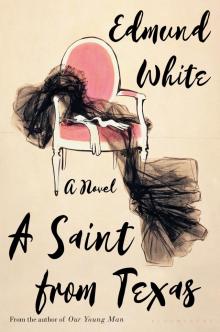 A Saint from Texas
A Saint from Texas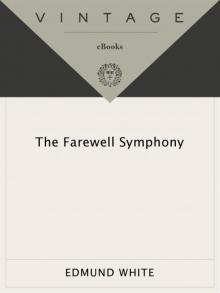 The Farewell Symphony
The Farewell Symphony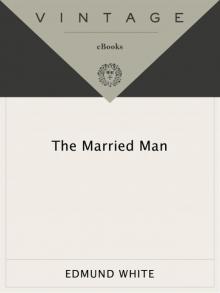 The Married Man
The Married Man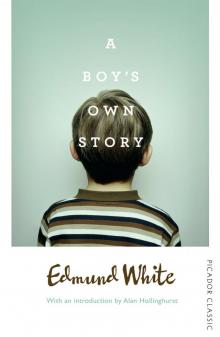 A Boy's Own Story
A Boy's Own Story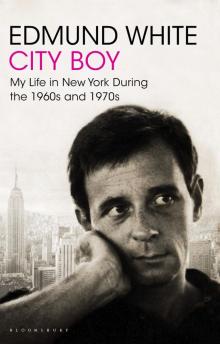 City Boy
City Boy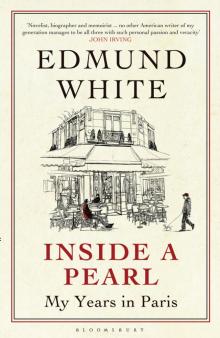 Inside a Pearl
Inside a Pearl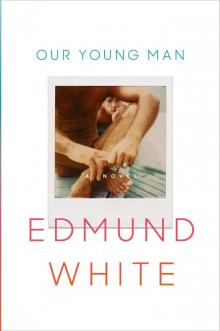 Our Young Man
Our Young Man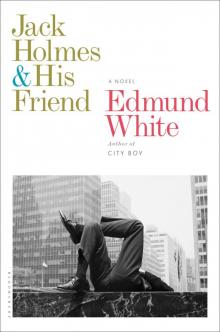 Jack Holmes and His Friend
Jack Holmes and His Friend